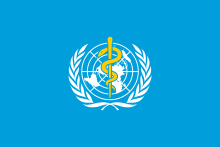The Ottawa Charter for Health Promotion is the name of an international agreement signed at the First International Conference on Health Promotion, organized by the World Health Organization (WHO) and held in Ottawa, Canada, in November 1986.[1] It launched a series of actions among international organizations, national governments and local communities to achieve the goal of "Health For All" by the year 2000 and beyond through better health promotion.[citation needed]

The thirtieth WHO World Health Assembly, held in 1977, had highlighted the importance of promoting health so that all the international citizens had an "economically productive" level of health by the year 2000. Further, a localised European taskforce developed a strategy for health promotion in the WHO European Region.[citation needed]
In the context of this charter, the concept of 'health' is particular. It covers the extent to which a group or individual can fulfil their ambitions and needs, on the one hand, and evolve with or adapt to the environment, on the other. Health is thus seen as a resource for everyday life, not as the goal of life; it is a positive concept that emphasises social and individual resources as well as physical capabilities. Thus, health promotion is not just a health issue, but goes beyond healthy lifestyles to well-being.[2][3]
The fundamental conditions and resources for health are:[citation needed]
Five action areas for health promotion were identified in the charter:[1]
The basic strategies for health promotion were prioritized as:[citation needed]
Internationally:[4]
Within countries:
Even 30 years later, this charter is still considered as a seminal document and template for health promotion.[5]